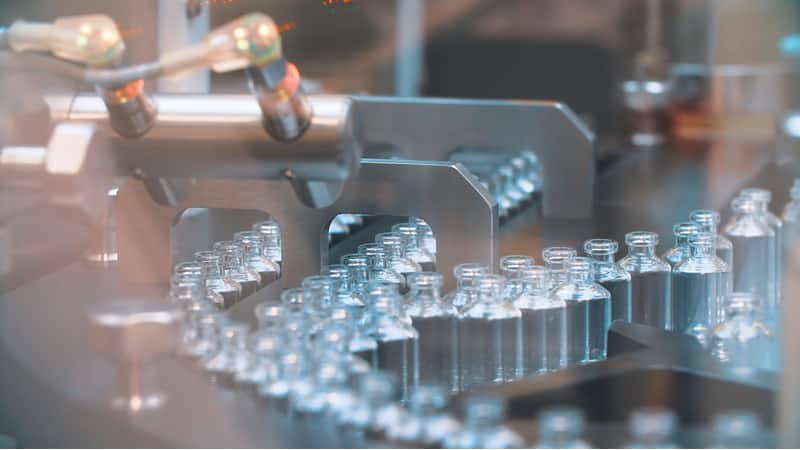Newsletter Signup - Under Article / In Page
"*" indicates required fields
Attempts to increase global Covid-19 vaccine coverage with a temporary patent waiver have been met with hostility from many big pharma and biotech companies, but some smaller players welcome the idea.
With the Covid-19 pandemic still rampaging through many countries and new viral variants popping up with alarming regularity, scuffles over who holds intellectual property (IP) for the vaccines might seem unimportant.
Yet proposals to temporarily waive patents for coronavirus vaccines have sparked furious debate, with the potential to influence not only vaccine supplies and their fair global distribution but also biotech innovation.
Last year, South Africa and India proposed a patent waiver on Covid-19 vaccines as a means to improve vaccine access. For example, it could make it easier for poorer countries to produce their own vaccines. The proposal gained big support from the World Health Organization (WHO) and the US this year. The European Commission has been resistant to waiving Covid-19 vaccine patents, but was recently pressured by a European Parliament vote backing the idea.
On the other hand, many big pharma and biotech companies such as the Covid-19 vaccine heavyweights Pfizer and BioNTech are skeptical. Pfizer Chairman and CEO Albert Bourla warned in an open letter that IP waivers could impact their plans to deliver three billion vaccine doses this year by swamping the supply of manufacturing raw materials. He also stressed how Pfizer aims to meet the needs of poorer nations instead by pricing the vaccines affordably.
BioNTech’s CEO, Ugur Sahin, also voiced concerns with a potential IP waiver, saying that such a move would fail to solve the supply bottlenecks.
Additionally, Bourla highlighted the potentially detrimental effect of IP waivers on smaller biotechs. He explained that it could disincentivize the companies from taking risks due to their reliance on investors that expect their IP to be protected.
But it seems not all smaller biotechs feel this way. That is the case of Belgian company eTheRNA, which is making messenger RNA (mRNA) immunotherapies for cancer and infectious diseases.
“The entire Covid-19 vaccine field is currently operating in an IP vacuum because the enormous body of IP that was filed since the beginning of the pandemic in late 2019 and early 2020 has not been published yet but will be from the middle of 2021 onwards,” said eTheRNA’s Senior Vice President of Research and Development, Volker Germaschewski.
“This is likely to create a flood of IP being made public and a messy field of overlapping IP and a complicated prosecution pathway with questions around filing dates and allowable claims.”

Germaschewski is in favor of a vaccine patent waiver to help develop the best possible treatments, regardless of who owned the IP.
“This advantage would not be just limited to startups but also players who have ideas and drug development experience but who may not have access, for example, to the underlying technology,” he explained.
“In the mRNA vaccine field, this is of particular significance due to a lack of technology alternatives at this moment in time.”
According to Mathieu Ghadanfar, Business Development Officer and Chief Medical Officer at Belgian mRNA startup Ziphius Vaccines, only vaccine patents related to Covid-19 would be potentially affected.
Ziphius is developing self-amplifying mRNA vaccines that can make a patient’s cells produce molecules mimicking the pathogens responsible for Covid-19 and other infectious diseases. This trains the immune system to protect against these conditions.
While Ziphius is in favor of Covid-19 vaccine patent waivers, Ghadanfar isn’t certain a waiver would be enough to increase the global coverage of Covid-19 vaccines.
“Vaccine production is a complex process,” he pointed out. “Production can only be accelerated if relevant technologies and know-how are transferred to as many qualified manufacturers as possible.”
An example of this is Moderna. The company announced in 2020 that it would not enforce patent infringements by others making vaccines to combat the pandemic. However, no one has yet come forward to take advantage of this.
The global COVAX initiative, coordinated by the vaccine alliance Gavi, the Coalition for Epidemic Preparedness Innovations (CEPI), and the WHO, aims to address this issue by working towards technology and knowledge transfer. According to Gavi, the system has helped grow the ecosystem of vaccine producers from five in the year 2000 to 17 today.
Yet access to the technology may still not be enough to achieve COVAX’s aim, cautioned Germaschewski.
“Even if the IP is free and anybody can deploy technology that is being used by others and protected by others, the successful development of these therapies and treatments will still require substantial funding and the manufacturing capability to do so,” he said.
“If the key players who hold the IP are also the key manufacturers, then there might be little benefit if there is no support at all for smaller players to actually produce their products or get financing for it.”
Cover image from Anastasiia Slynko. Body text image from Shutterstock.






